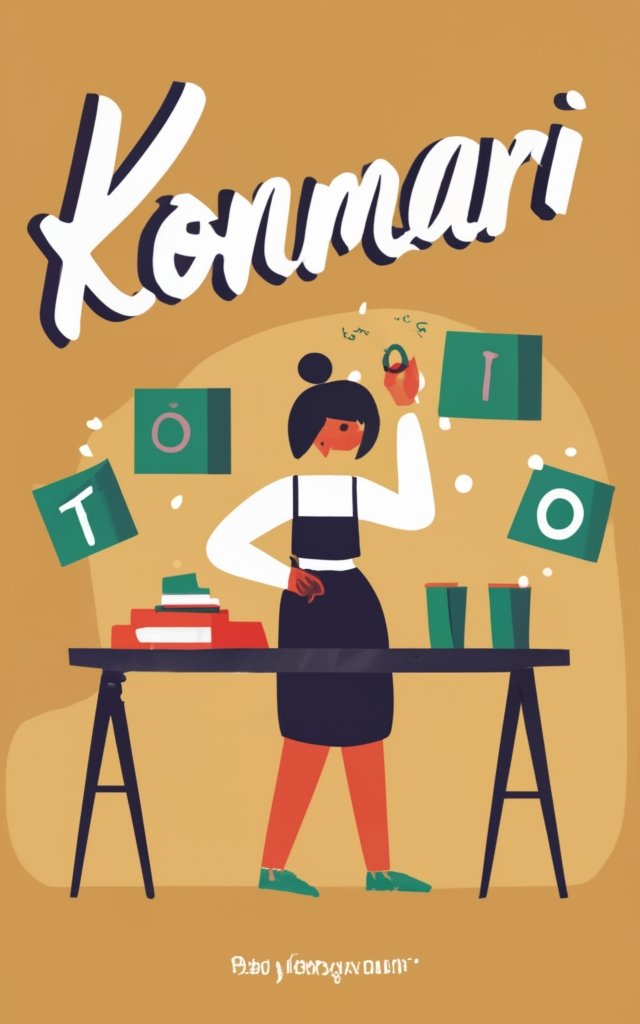KonMari’s Echo in the Halls of Mental and Emotional Well-Being

In today’s fast-paced world, where material excess often overshadows inner peace, a unique philosophy promises more than an organized living space. Marie Kondo’s KonMari Method, originating from Japan, has become a beacon for those seeking mental and emotional well-being. It’s a method that has resonated with millions, transcending borders and cultures and sparking a global movement.
A Symphony of Simplicity

The KonMari Method is more than an organizational technique. It offers a journey to self-discovery. A 2023 survey reveals that only 15% adopted this method for its organizational benefits. The majority are on a quest for mental clarity and emotional peace. This quest is not just about decluttering physical spaces but also about decluttering the mind and soul.
Dr. Aiden Harrington, a renowned psychologist and author, states, “KonMari delves deep into the mind and soul. Each discarded item represents a piece of anxiety shed, and each retained item symbolizes a cherished part of one’s identity.”
However, not all resonate with this philosophy. An anonymous mental health expert points out, “For some, the act of discarding can be a source of anxiety. It confronts them with material and emotional excess they might not be ready to face.”
The philosophy’s simplicity is its strength. It’s about understanding oneself, recognizing what truly matters, and letting go of the rest. It’s a method that encourages introspection, self-awareness, and mindfulness.
The Environmental Sonata
The KonMari Method also touches upon environmental consciousness. In an era of rampant consumption, the idea of retaining only joy-sparking items challenges the norms of disposability. It promotes a narrative of mindful consumption and sustainability.
Yet, there are critiques. The act of discarding non-joyous items raises environmental concerns. Is the KonMari Method truly eco-conscious, or does it pave the way for more waste?
Dr. Harrington observes, “The act of discarding opens up an environmental dialogue. It’s a balance between individual needs and planetary concerns, focusing on consumption, waste, and sustainability.”
The environmental implications of the KonMari Method are vast. It’s not just about reducing clutter but also about reducing our carbon footprint. It’s about understanding the impact of our choices on the planet and making decisions that are both personally fulfilling and environmentally responsible.

Evolution of a Philosophy

The KonMari Method has transformed from a niche concept to a global phenomenon. It has been both celebrated for its simplicity and critiqued for its perceived materialistic approach. Each adaptation tells a story of society’s relationship with material excess and the quest for spiritual solace.
Reports suggest that even Marie Kondo has evolved her approach to tidiness, indicating the method’s adaptability and resonance with changing times.
Dr. Harrington adds, “The KonMari Method is dynamic. It evolves with the changing human spirit and its relationship with material existence. It’s a story of challenges and adaptations, reflecting the soul’s journey in the material world.”
The method’s evolution is a testament to its relevance and adaptability. It’s a philosophy that has stood the test of time, adapting to changing societal norms and values and continuing to inspire and transform lives.
Final Reflections
The KonMari Method offers a rich narrative on culture, environment, and evolution. It goes beyond tidying up, sparking global conversations on consumption, sustainability, and the balance between material and spiritual existence.
Dr. Harrington concludes, “The KonMari Method invites us to a dance of complexity and simplicity. It’s a narrative of humanity’s relationship with material and spiritual existence.”
In this philosophy, the world finds a mirror reflecting its challenges, beauty, and the continuous pursuit of mental and emotional well-being. Through Marie Kondo’s revolution, the world discovers not just a decluttering method but a profound philosophy of life. It’s a philosophy that challenges us to reflect, introspect, and, ultimately, transform.



